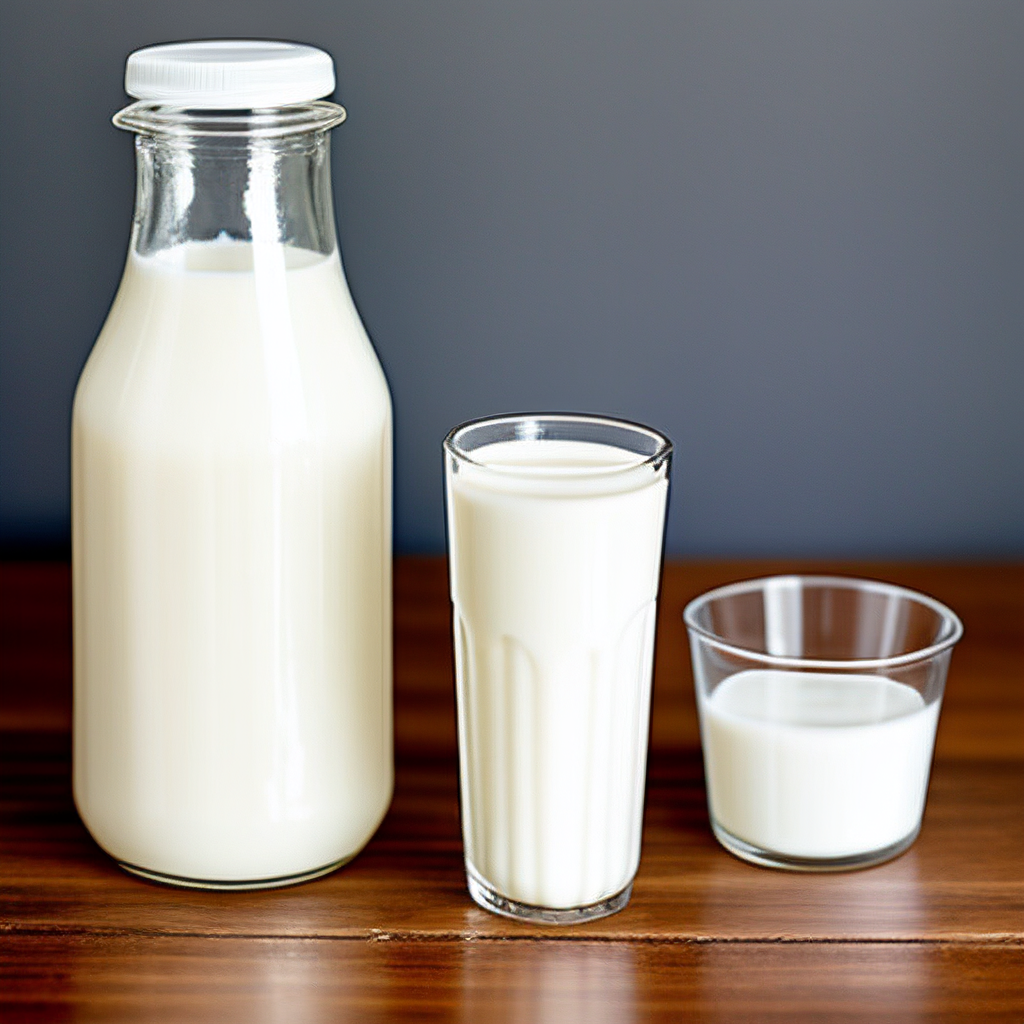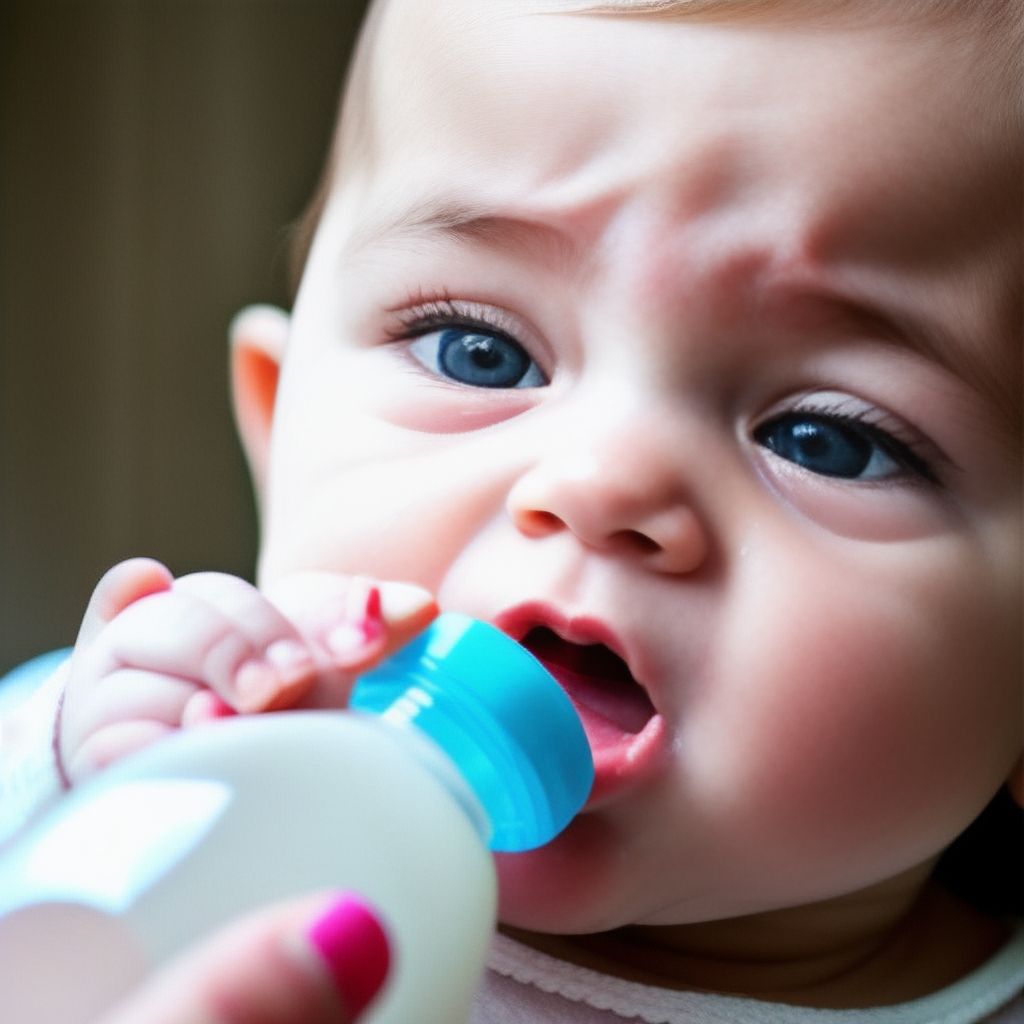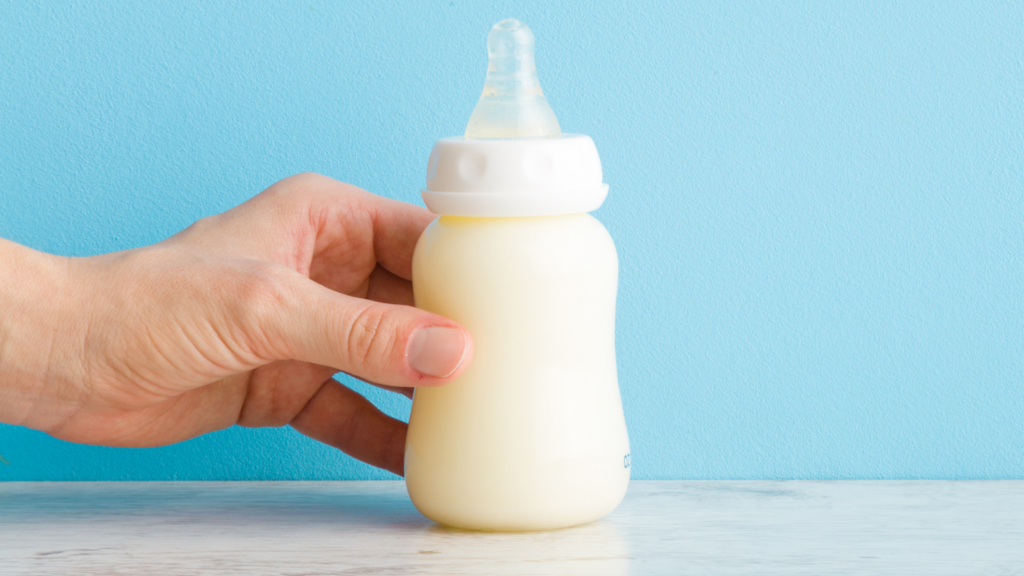Today we’re answering one of the parents’ most frequently asked questions: “Does cold formula upset a baby’s stomach?”
In this blog post, we dive deep into this debate: is warm formula better, or is cold formula just as good?
We will delve into this frequently-asked-about question by drawing upon expert guidance and parental experiences. No matter who you are – whether a new parent, an experienced pro, or just curious – everyone has something valuable to learn here!
So let’s get down to it – every question answered on parenting is another step towards providing quality care for our children.
Is it Ok For Babies to Drink Cold Formula?
Answering this question is more complex than a simple yes or no. Parents, researchers, and pediatricians alike have struggled to come up with definitive scientific evidence for an answer, forcing us to rely on expert opinions, anecdotal reports, and our baby’s reactions when making our judgments.
Some parents find their babies are content consuming cold formula, showing no signs of discomfort or rejection. Some have noted this approach can save time during late-night feedings when every minute counts; it should also be noted that breastfed babies typically drink expressed breastmilk directly from the refrigerator, further supporting this belief that cold milk does not pose any inherent threats.
On the contrary, other parents and health professionals suggest that warm formula may be more easily digested and comforting to infants, potentially reducing episodes of colic and gas. This theory stems from breastmilk being body temperature; therefore, the warm formula could provide a more familiar experience for your infant.
For an accurate answer, observing your baby’s reactions is crucial. Continuing this practice could likely be fine if they accept cold formulas without experiencing digestive discomfort or fussiness. Otherwise, other alternatives, such as room temperature or warm formula, might be worth exploring.
Watch this short youtube video to learn how to properly warm a baby bottle of formula.
Can Newborns Drink Cold Formula?
Infants in their first few months, commonly called the newborn stage, experience rapid physical development. But their immune systems may still be under development, leaving them more susceptible to infections and illnesses – an essential consideration when discussing feeding practices for newborns.
One of the primary risks associated with cold formulas is bacteria contamination. Because the formula isn’t completely sterile, risks for bacterial growth increase when not prepared and stored correctly – regardless of the delivery temperature to the baby. Thus, whether feeding warm or cold formula to newborns, safe preparation and storage practices are crucial to minimizing the potential for contamination by bacteria.
Can Preemies Drink Cold Formula?
Premature infants tend to have more compromised immune systems, making them more susceptible to illness than others. Some healthcare professionals have suggested warmer formula might be a better choice when dealing with them. Warm formula will help you get rid of any bacteria present in the formula, and also possibly aids in your babies digestion. While once again, the choice is ultimately come down to the babies preferences. There are some clear cut reasons why giving warm formula to your premature baby might be the right option.

Can Cold Formula Cause Gas?
Gas production is an inevitable result of digestion; however, excessive gas can be uncomfortable for babies and lead to fussiness or crying. Therefore, parents must understand what might exacerbate the situation.
It’s commonly believed that cold formula may contribute to gas and colic in babies, as digesting it could be difficult for their stomach, leading to increased gas production. Furthermore, some experts speculate that cold formula might slow digestion rates, leading to the buildup of gas in their systems, leading to greater gas production.
Baby gas may be caused by numerous factors, including an immature digestive system or swallowing air while feeding, or an allergy to specific ingredients found in their formula.
To reduce gas, it’s advisable to latch your baby correctly onto their bottle to prevent air swallowing and burp regularly during feedings. Additionally, consider selecting a formula explicitly designed to reduce gas like this one which features smaller protein molecules that may be easier for your child to digest.
If your baby seems to produce more gas after drinking cold formula, try switching it up by offering it at room temperature or slightly warmed instead. Assessing their comfort level during these changes could provide insight into whether temperature plays a part in gas production.
Is Warm Formula Easier to Digest?
Human bodies maintain a relatively constant temperature. This fact provides the basis for an argument that warmer baby formula may be easier for babies to digest than cold formula.
Foods or liquids consumed require our bodies to heat them to body temperature in order to maximize digestion and absorption of nutrients, making warm formula potentially easier on a baby’s digestive tract, as less energy and effort is necessary to heat to body temperature – an action which should lead to greater efficiency of digestion as well as less potential discomfort for them.
Not to be forgotten is the psychological aspect of feeding, with warm formula being closer in temperature to natural breastmilk, providing comforting familiarity for babies and leading to more relaxed feeding experiences which, in turn, promote better digestion.
Although these theories have some basis in fact, most evidence supporting them remains anecdotal and scientific research has yet to establish that warm formula is easier for babies to digest than room-temperature formula. Many babies can ingest cold and room-temperature formula without experiencing digestive discomfort – suggesting that temperature alone does not determine digestive comfort.

Warm or Cold Formula for Reflux?
Reflux (gastroesophageal reflux) is a common problem among babies, caused by the immaturity of the lower esophageal sphincter muscle that allows stomach contents to backflow backward into the esophagus. Although usually harmless and most babies will typically outgrow within time, reflux can still be distressful for both baby and parents.
The temperature could play an integral part in managing reflux. The warm formula might be more soothing for the baby’s digestive system, easing muscle spasms and potentially decreasing the frequency of reflux episodes. Warmer temperatures also make the formula more familiar and comforting to infants than colder alternatives, leading to more relaxed feeding sessions.
On the other hand, no solid scientific evidence supports the idea that warm formula is superior to cold or room-temperature formula in managing reflux in babies. Many babies who suffer from reflux do fine with either temperature or formula.
Notably, feeding techniques and formula types can majorly affect reflux. Feeding in an upright position, frequent burping, and using a formula specifically developed to manage reflux can all help manage its symptoms more quickly.

Final Thought
Cold formula may not be that popular in parenting circles, likely due to traditional practices and natural urges to mimic breast milk temperatures. But we must realize the safety of cold formula does not depend solely on its temperature; proper storage practices are what ultimately ensure the health and well-being of our little ones.
Babies’ responses to cold formula can vary significantly. While some might prefer warmer temperatures, others can easily consume bottles of cold formula. What works for your baby may not suit another. Your preferred temperature depends entirely upon their individual comfort levels and tolerance levels.
So is it safe for babies to drink cold formula? Yes, as long as it is done safely and attentively with careful observation of how the baby reacts. Our ultimate aim should be ensuring a happy, nourished baby – whether that involves using warm or cool bottles is just part of parenting’s extraordinary and complex journey!

